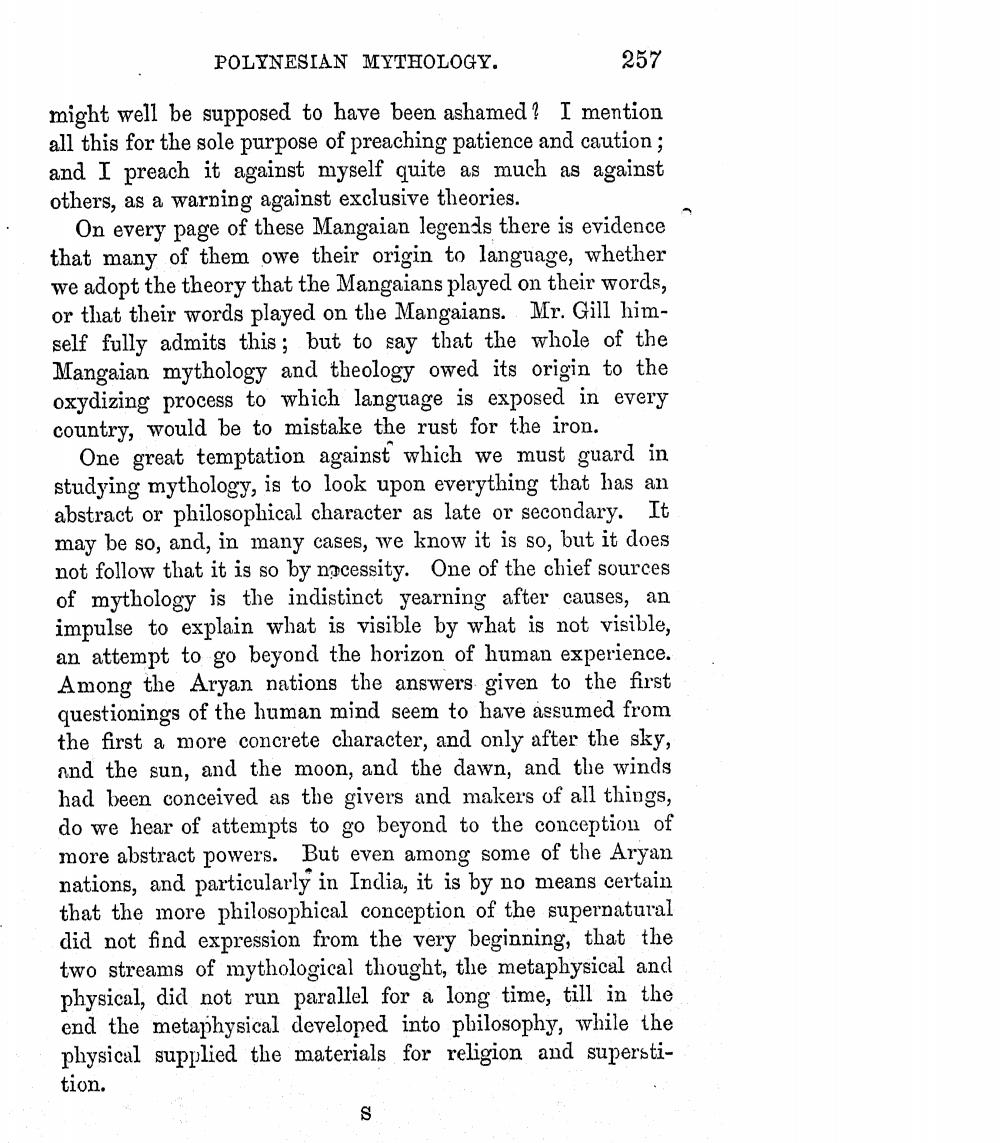________________
POLYNESIAN MYTHOLOGY.
257
might well be supposed to have been ashamed ? I mention all this for the sole purpose of preaching patience and caution; and I preach it against myself quite as much as against others, as a warning against exclusive theories.
On every page of these Mangaian legends there is evidence that many of them owe their origin to language, whether we adopt the theory that the Mangaians played on their words, or that their words played on the Mangaians. Mr. Gill himself fully admits this; but to say that the whole of the Mangaian mythology and theology owed its origin to the oxydizing process to which language is exposed in every country, would be to mistake the rust for the iron.
One great temptation against which we must guard in studying mythology, is to look upon everything that has an abstract or philosophical character as late or secondary. It may be so, and, in many cases, we know it is so, but it does not follow that it is so by npcessity. One of the chief sources of mythology is the indistinct yearning after causes, an impulse to explain what is visible by what is not visible, an attempt to go beyond the horizon of human experience. Among the Aryan nations the answers given to the first questionings of the human mind seem to have assumed from the first a more concrete character, and only after the sky, and the sun, and the moon, and the dawn, and the winds had been conceived as the givers and makers of all things, do we hear of attempts to go beyond to the conception of more abstract powers. But even among some of the Aryan nations, and particularly in India, it is by no means certain that the more philosophical conception of the supernatural did not find expression from the very beginning, that the two streams of mythological thought, the metaphysical and physical, did not run parallel for a long time, till in the end the metaphysical developed into pbilosophy, while the physical supplied the materials for religion and superstition.




